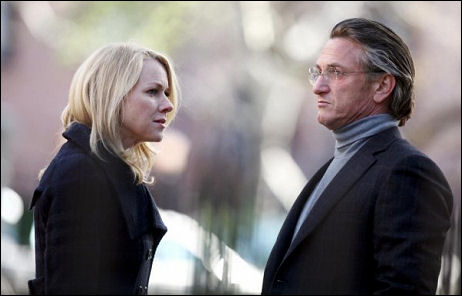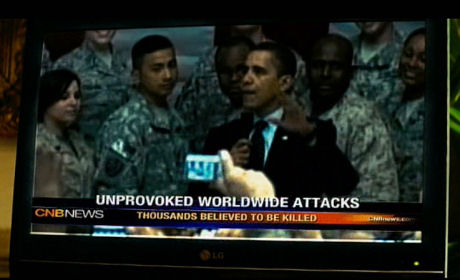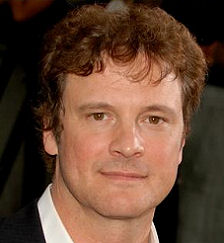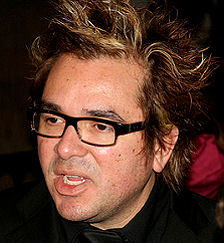There’s a paywalled profile of Fantastic Mr. Fox director-cowriter Wes Anderson by Richard Brody in this week’s New Yorker, but I’d rather read it in print than online. Brody has also posted a free video on the site, however, that summarizes his feelings about Anderson and his work. Worth a looksee.
“I loved The Darjeeling Limited from the very beginning — whether you trace that beginning to the short film Hotel Chevalier, starring Jason Schwartzman and Natalie Portman, which preceded the film at its New York Film Festival screenings, or to the scene that culminates in Bill Murray running for a train and being overtaken by a younger man, which began the film at its commercial release — and I was dismayed by the mitigated critical response it received.
“In my profile of its director, Wes Anderson, in the magazine this week, I look at the remarkable way the movie was made and at some of the reasons for the critical misunderstanding. In this clip from the movie, I discuss a few of the movie’s many virtues.
“I’ve seen it many, many times since that press screening two years ago. It has not only held up but gotten richer; each viewing yields fresh wonders. Anderson’s work resonates with the tension between artifice and nature; in The Darjeeling Limited, which was shot on location in India, often in places that defied directorial control, that tension is particularly fruitful. With this film, Anderson returned to the freewheeling energy of Bottle Rocket, a road movie about a trio, and to the family dynamics of The Royal Tenenbaums, about a trio of siblings. The fraternal and parental relations he depicts here are powerful, deep, and strange, and he induces them with touches that are as witty and subtle as they are moving.”
I may as well paste a piece I wrote nearly 26 months ago about Anderson and longtime friend/collaborator Owen Wilson. I think it’s pretty good contemplation of Anderson’s issues. It’s called “Darjeeling Lessons”:
“The process that refines raw life into art is often necessarily harsh, I began. “And one thing that seems to work against good art or well-crafted entertainment is when the artist-filmmaker has chosen to absorb life from within the comfort of a protected membrane and is thereby absorbing less of the stuff that tends to inform and clarify and lead to some droppings of insight or excitement por what-have-you.
“It follows, therefore, that an artist who’s been through an especially rough and traumatic patch is on some level better positioned to create something richer and fuller than one who’s been gliding along on his own fumes.
“Nothing too earthshaking in this, but it does, I believe, cast light upon the situation of Owen Wilson and his longtime collaborator Wes Anderson, as well as, according to Venice Film Festival reviewers, the “smug”, “airless”, “chilly,” “under glass” and “self-satisfied” element that colors The Darjeeling Limited (Fox Searchlight, 9.29), which Anderson directed and co-wrote and Wilson costars in.
“Put bluntly and at the risk of sounding insensitive, Wilson’s recent attempted-suicide trauma may very well — in the long run, at least — make him a better artist, a better actor and a much funnier man. (Anderson’s comment during a Venice Film Festival press conference that the recovering Wilson has ‘been making us laugh’ indicates an admirable rock-out attitude.) Lying crumpled at the bottom of a dark pit does wonders for your game if you can climb out of it. Ask any artist who’s been there.
“Perhaps Wilson’s near-tragedy will rub off on his good pal Anderson (how could it not?) but what this obviously gifted director-writer with the carefully-tailored suits seems to desperately need — and his critics have been saying this for years, beginning with the faint disappointments of The Royal Tennenbaums — is to somehow climb out of his fastidiously maintained Wes-zone (i.e., ‘Andersonville’) and open himself up for more of the rough and tumble.
“I’m not saying Anderson is necessarily leading a bloodless life (he’s very tough and exacting, and can get pretty damn angry when rubbed the wrong way). And I’m not suggesting that he try to become someone else. Wes has obviously found a highly developed style and a sensibility of his own, and it would be folly to veer away from this in any drastic way. (Jacques Tati was Jacques Tati, Luis Bunuel was Luis Bunuel, etc.) At the same time Anderson needs to…I don’t know, do something.
“Maybe there’s no remedy. Maybe we’re all just stuck in our grooves and that’s that. What’s that Jean Anouilh line from Becket? ‘I’m afraid we can only do, absurdly, what it has been given to us to do. Right to the end.’
“What do I know about all this? Not that much. But I know — remember — Wes a little bit, and I know people who know him.
“Working with Wilson again on screenplays might help. (Although I’ve been told that Wilson’s writing-discipline issues may have gotten in the way of this in the past.) The general consensus seems to be that the somewhat stilted, self-enclosed qualities have seemed more pronounced in The Life Aquatic and The Darjeeling Limited, which Wilson didn’t co-write. Another thing to consider might be to focus more on two- or three-character stories (a la Rushmore) rather than ensembles.
“Paul Schrader told me in an early ’80s interview that the two things that tend to kick your art up to the next level are (a) a jarring episode that turns your head around and reorders your thinking and (b) a mentoring by or a collaboration with someone you trust sufficiently to allow for experimentation and growth. Anderson has now had a taste of the former, and there’s nothing stopping him from at least attempting the latter.”




